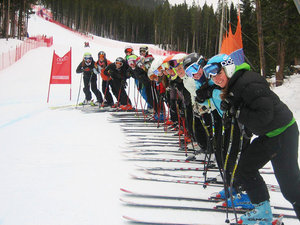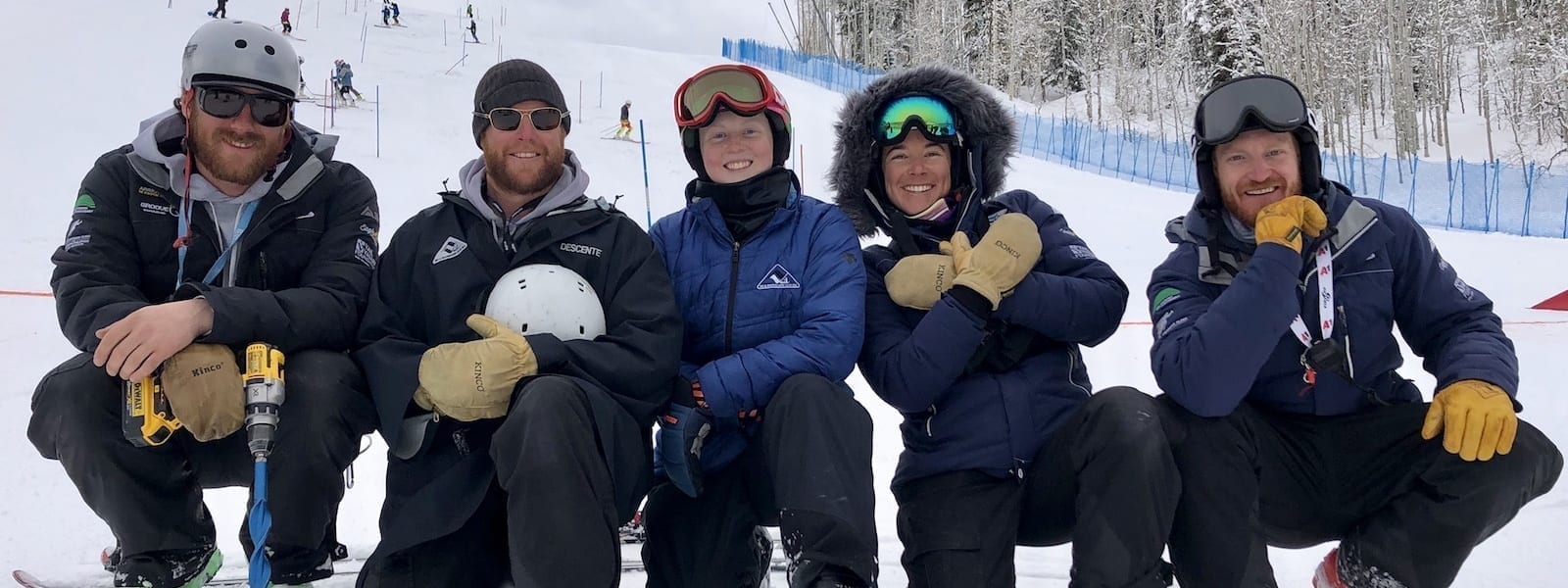Inside the Ski Racing Mind: Raise Emotional Masters
 The fact is that your children’s emotions are the most essential, yet most neglected, aspect of their development as ski racers and people. Most essential because there is nothing more important to your children’s future success and happiness in ski racing and life than the development of what I call emotional mastery. Most neglected because, despite their importance, children don’t take classes in emotions nor do they learn it from their parents in any thorough way.
The fact is that your children’s emotions are the most essential, yet most neglected, aspect of their development as ski racers and people. Most essential because there is nothing more important to your children’s future success and happiness in ski racing and life than the development of what I call emotional mastery. Most neglected because, despite their importance, children don’t take classes in emotions nor do they learn it from their parents in any thorough way.
Emotional Overprotection
In attempting to protect their children from feeling badly, many parents prevent them from feeling emotions at all in the mistaken belief that feeling emotions, such as anger, sadness, frustration, or pain, will hurt their self-esteem. After a race in which their children do poorly, many parents will run to them and try to assuage, placate, or distract them from feeling bad. Yet, preventing children from feeling so-called bad emotions hurts them in two ways. First, emotions are like two sides of the same coin; children can’t feel good emotions, such as excitement, joy, and inspiration, unless they’re allowed to feel the bad emotions too. Second, without feeling bad emotions children never learn to deal with those emotions. This protection leaves children wholly unprepared for the “real world” where bad emotions are just a part of life.
Not-so-obvious Emotions
One challenge for parents is to be able to look beneath the emotions that are most readily evident and get at the true emotions that your children are experiencing. For example, when a young racer breaks his poles and throws his skis in the woods after a bad race, anger is rarely the real emotion. Anger is a defensive emotion aimed at protecting children from more painful emotions such as fear, sadness, and shame. When you understand the true emotions your children are feeling, you’re then in a position to teach them how to become masters rather than victims of their emotions.
Parents as Emotional Masters
Your children learn their most basic emotional habits from you through observation and modeling. The development of emotional mastery is greatly facilitated when you possess the qualities that your children need to learn. The reality is though that most parents—like most people—carry with them some unhealthy emotional baggage and habits from their childhoods that, if left unchecked, will be passed on to their children. For example, if you get frustrated easily and express in your frustration in unhealthy ways, then your children may learn to express their frustrations similarly and will become victims of their emotions.
In contrast, if you’re able to express your negative emotions in constructive ways, you have a good start on instilling positive emotional habits in your children and teaching them how to become emotional masters. One of the strongest recommendations I can make is to explore your emotional life and ensure that you’re sending your children healthy messages that will allow them to develop emotional mastery.
Emotional Coaching
Emotional mastery is not about not feeling emotions or suppressing the emotions that your children feel. Instead, it involves children being able to recognize what emotion they are experiencing, understand what is causing the emotion, and being able to express the emotion in a healthy way.
 You can facilitate your children’s understanding by engaging in “emotional coaching,” in which you guide your children in the exploration of their emotional lives. Identify situations as opportunities for them to learn about their emotions, such as hurt feelings over a disappointing race or anger over a conflict with a teammate. Children can easily separate negative from positive emotions, but only with experience can they learn the differences between different negative emotions. When your children feel bad, they need to be able to distinguish whether they are, for example, fearful, angry, frustrated, sad, or hurt. Describe different ways a person might feel in that situation and compare those feelings with what they are feeling at the moment. Research has shown that emotional coaching can act as a buffer against a variety of psychological problems and children who are coached emotionally focus more effectively, are better learners, and do better in school (and, by extension, ski racing).
You can facilitate your children’s understanding by engaging in “emotional coaching,” in which you guide your children in the exploration of their emotional lives. Identify situations as opportunities for them to learn about their emotions, such as hurt feelings over a disappointing race or anger over a conflict with a teammate. Children can easily separate negative from positive emotions, but only with experience can they learn the differences between different negative emotions. When your children feel bad, they need to be able to distinguish whether they are, for example, fearful, angry, frustrated, sad, or hurt. Describe different ways a person might feel in that situation and compare those feelings with what they are feeling at the moment. Research has shown that emotional coaching can act as a buffer against a variety of psychological problems and children who are coached emotionally focus more effectively, are better learners, and do better in school (and, by extension, ski racing).
Children can get so wrapped up in the negative emotions of the moment that they’re unable to step back and see that their reactions are not serving them well. For example, has your young racer ever given up in training because he or she is so frustrated at not being able to finish a training course? This is a point at which you (or his or her coach) can intervene. For example, here’s a conversation you can have with your children when they begin to lose it emotionally. Ask the following questions (and try to elicit something akin the following responses):
• “What emotions are you feeling right now?” (“I’m frustrated and really mad.”);
• “Are these emotions helping or hurting you?” (“They’re hurting me.”);
• “If you continue to feel this way, will things get better or worse?” (“Worse.”);
• “Do you want to continue down this road or do you want to turn it around?” (“I want to turn it around.”);
• “What do you need to do to turn it around?” (“I need to take some deep breaths, and figure out the cause of my frustration.”)
Though not magic, with your help both as a role model and an emotional coach, your children can learn to recognize and identify their emotions. They can then search themselves and their environment for possible causes of their emotional reactions. Seeing the reasons for their feelings provides children with further information about the emotional experience and gives them greater understanding and control over what they feel. This process also encourages your children to “step back” from their emotions, which lessens their intensity and impact. And, importantly, it provides your children with the opportunity to express what they feel in a healthy way that serves them best on and off the hill.
Be Patient
Developing emotional mastery is a life-long process that requires awareness and practice. Your power as a parent lies in your ability to send positive daily messages about emotions and look for teachable moments in which to instill emotional mastery. Each time your children make the right choice, they are making it easier to choose the next time. The great thing about emotional mastery is that it is self-rewarding. When your children make the correct choice, they not only feel better, they also do better.
The ultimate goal of emotional mastery is for your children to fully experience the entire spectrum of emotions, embrace the positive emotions, and resolve in a healthy way the negative emotions. If they can accomplish that objective, they are going to be in a better position to respond positively to the many emotional challenges that they will inevitably face in their ski racing careers and life beyond.
Follow me on Facebook, Twitter, or YouTube. Watch my 2010 Winter Olympics Discovery Channel interview on fear in high-risk winter sports here.
Dr. Jim Taylor drjimtaylor.com,
knows the psychology of ski racing! He competed internationally for
Burke Mtn. Academy, Middlebury College, and the University of Colorado.
For the past 25 years, Dr. Jim has worked with many of America’s leading
junior race programs as well as World Cup competitors from many
countries. He is the author of Prime Ski Racing Triumph of the Racer’s Mind. Dr. Jim is also the author of two parenting books and speaks regularly to parents, students, and educators around the U.S..





















